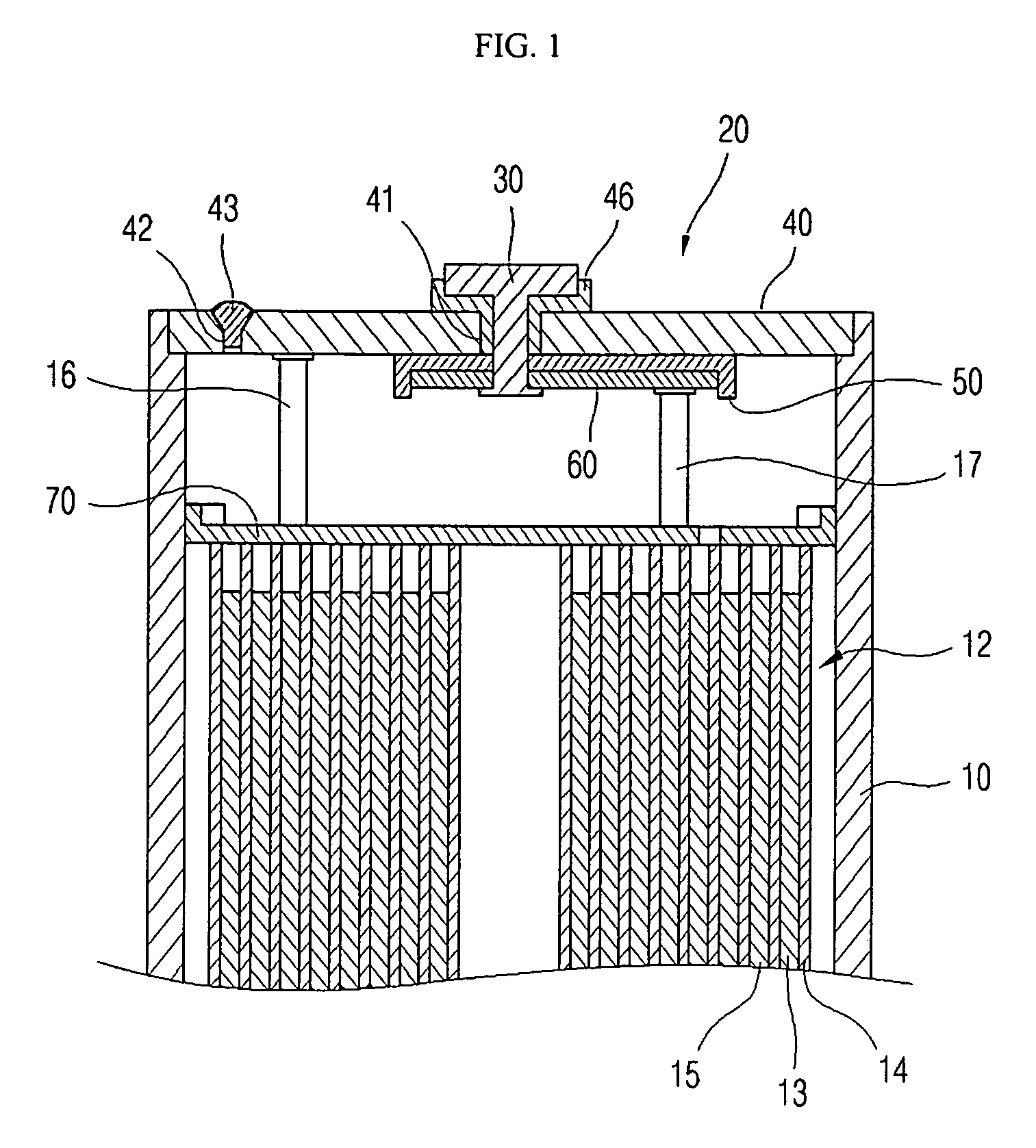Electrolyte for lithium ion rechargeable battery and lithium ion rechargeable battery including the same
a lithium ion rechargeable battery and lithium ion technology, applied in the direction of non-aqueous electrolyte cells, cell components, electrochemical generators, etc., can solve the problems of affecting so as to prevent the drop in the discharge capacity of batteries, excellent cycle life characteristics, and high temperature storage stability
- Summary
- Abstract
- Description
- Claims
- Application Information
AI Technical Summary
Benefits of technology
Problems solved by technology
Method used
Image
Examples
example 1
[0058]An anode active material made of artificial graphite was suspended in aqueous carboxymethyl cellulose solution. Styrene-butadiene rubber was added thereto as a binder to form slurry of anode active material. The slurry was coated on a 10 μm thick copper foil, dried and rolled to form an anode.
[0059]A cathode active material comprising LiCoO2 was combined with polyvinylidene fluoride as a binder and carbon as a conductive agent. These compounds were dispersed in N-methyl-2-pyrrolidone as a solvent in a weight ratio of 92:4:4 to form slurry of cathode active material. The slurry was coated on a 15 μm thick aluminum foil, dried and rolled to form a cathode.
[0060]The cathode and the anode were then wound and compressed together with a polyethylene separator with a thickness of 16 μm. The resultant unit cell was inserted into a prismatic can. Next, an electrolyte was added to the can to form a lithium rechargeable battery. The electrolyte was prepared by adding 1.0M of LiPF6 to a m...
example 2
[0061]Example 1 was repeated, except that 1.0 wt % of lithium tetrafluoroborate and 2.0 wt % of fluoroethyl carbonate, based on the weight of the mixture were added.
example 3
[0062]Example 1 was repeated, except that 0.5 wt % of trimethylsilyl phosphate and 2.0 wt % of fluoroethyl carbonate, based on the weight of the mixture were added.
PUM
| Property | Measurement | Unit |
|---|---|---|
| LUMO | aaaaa | aaaaa |
| LUMO | aaaaa | aaaaa |
| LUMO level | aaaaa | aaaaa |
Abstract
Description
Claims
Application Information
 Login to View More
Login to View More - R&D
- Intellectual Property
- Life Sciences
- Materials
- Tech Scout
- Unparalleled Data Quality
- Higher Quality Content
- 60% Fewer Hallucinations
Browse by: Latest US Patents, China's latest patents, Technical Efficacy Thesaurus, Application Domain, Technology Topic, Popular Technical Reports.
© 2025 PatSnap. All rights reserved.Legal|Privacy policy|Modern Slavery Act Transparency Statement|Sitemap|About US| Contact US: help@patsnap.com

